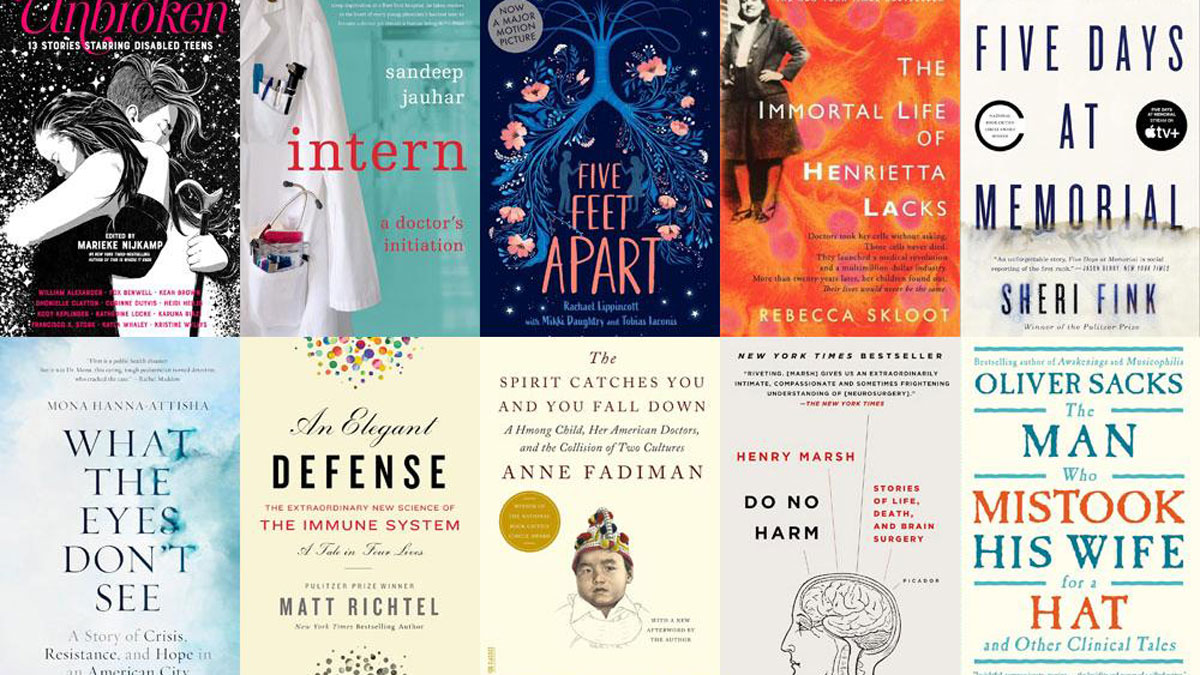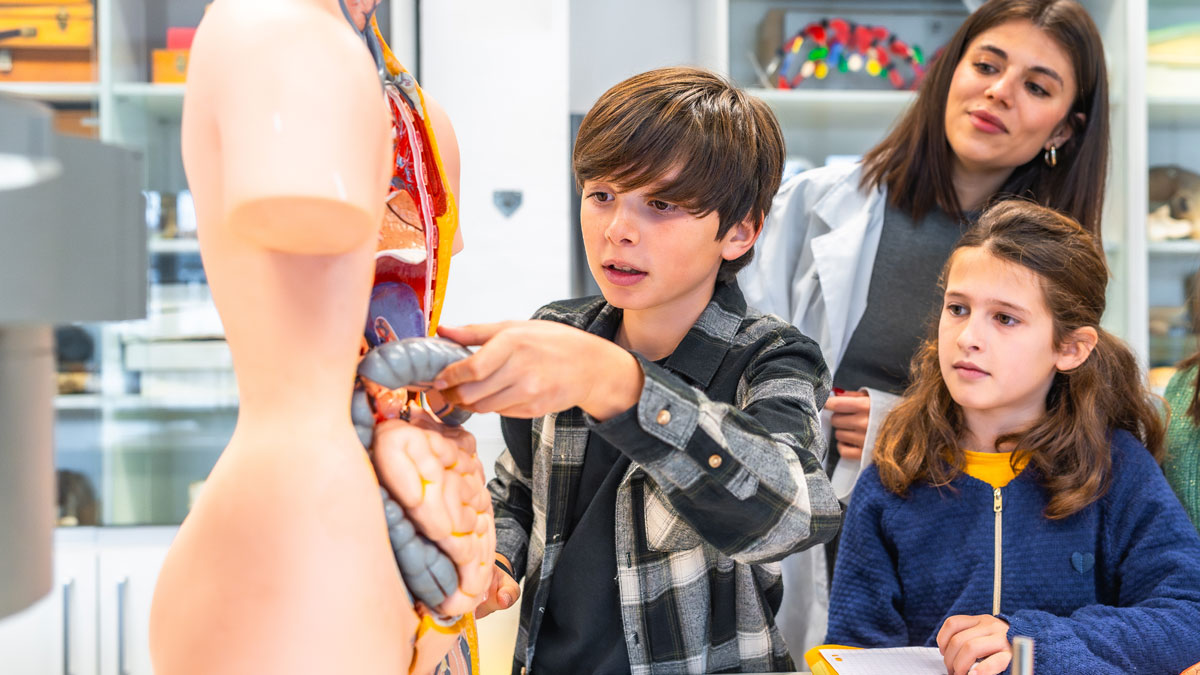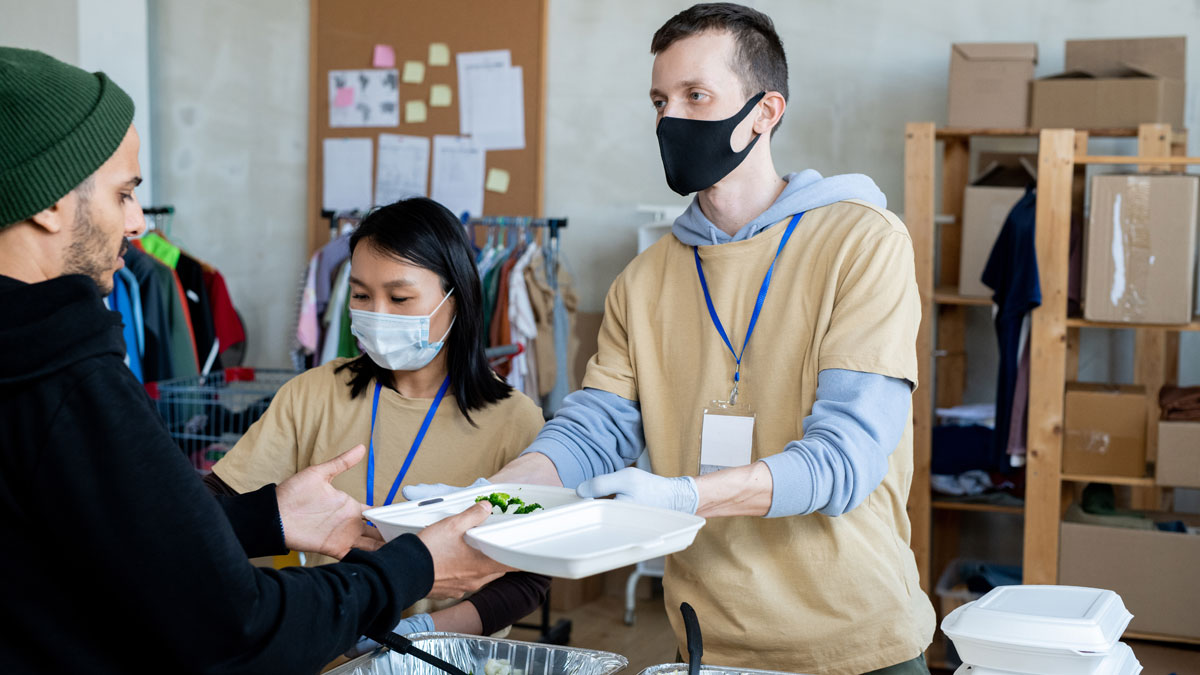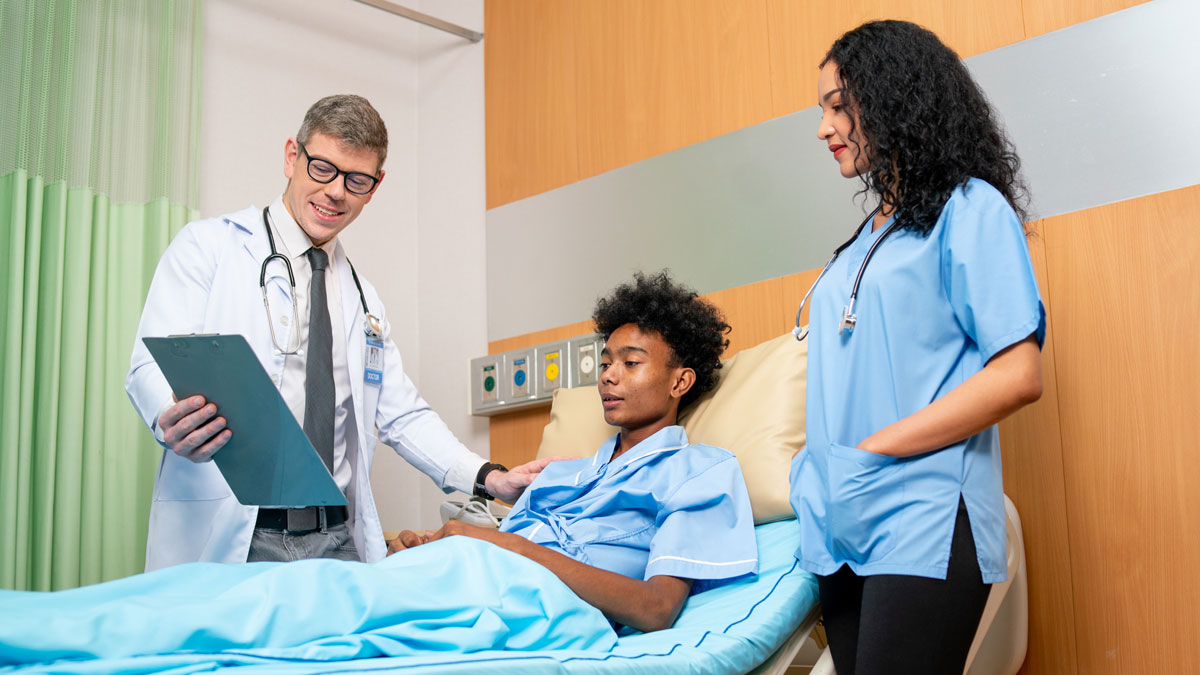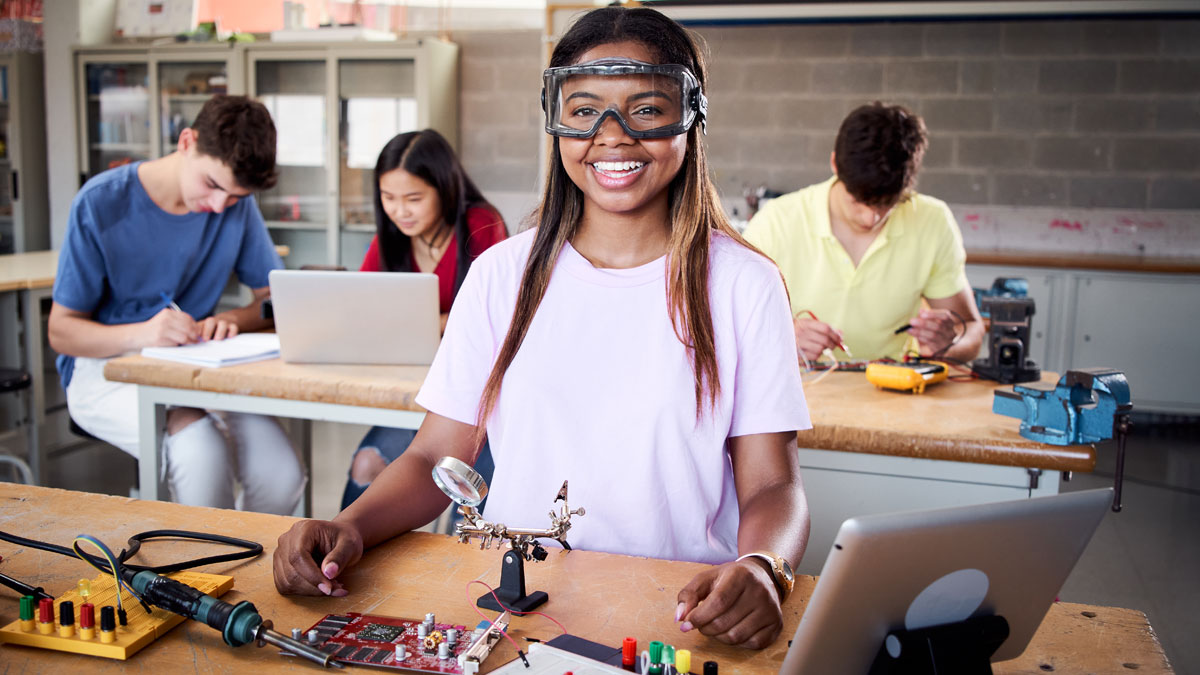Pre-Med Advice for High School Students

Dr. Hillary Weiss

As you might already know, starting early on your path to medicine can set you apart. Your high school years are the time to start building a strong academic foundation and simultaneously begin healthcare extracurricular activities and certifications, volunteering experiences, and research opportunities.
In this article, I’ve written a short guide on what you can do as a pre-med high school student to prepare now, in college, and beyond.
Build a Strong Academic Foundation
A strong transcript shows colleges and medical schools your commitment to learning, your scientific and social knowledge, and your critical thinking and problem-solving skills. Together, your GPA and course rigor are what undergraduate and medical schools will look at.
Here is a list of pre-med classes you should prioritize during high school and your early years of college:
- Biology (AP Biology): Learn cell biology, genetics and ecology to prepare for advanced biology courses in college and medical school. Biology is also at the root of most subjects on the MCAT, a test medical school applicants will take to be admitted to most U.S. and Canadian medical schools.
- Chemistry (AP Chemistry): Develop lab skills and understanding of chemical reactions, key for biochemistry, which is a subject on the MCAT.
- Physics (AP Physics or Honors): Build problem-solving skills and understand forces, often useful for medical technology.
- Psychology: Understand more about human behavior and prepare for the Psychological, Social, and Biological Foundations of Behavior section on the MCAT.
- Math (Algebra through Calculus or Statistics): Sharpen analytical thinking and be ready to use math on the MCAT as well! As Dr. Ken Tao reminds us, “about 10%-20% of the [MCAT] exam will require some mathematical calculation.”
- English and Communication: Practice writing essays, giving individual and group presentations, and listening skills. You need to build strong reading comprehension and writing skills to publish collaborative research publications and complete medical school applications. To be a successful physician, you must also be able to explain complex ideas in simple terms, listen closely to patients, and work well with other healthcare professionals.
- Non-Obvious Electives (Language Courses, Computer Science, Sociology, History, Disability Studies, Business, et cetera): Depending on what you are interested in, these electives may connect to medicine in a variety of ways. We suggest speaking with an advisor about your interests and goals!
Many of these courses will also begin refining key skills that you will need for medical school. See the AAMC Premed Competencies, which are used to “evaluate applicants’ readiness for medical school” (AAMC, 2023).
If available, we suggest considering dual-enrollment college courses or science academies that can give you a preview of university-level work.
For more information about specific courses, please see our Preparing for Pre-Med: Essential High School Courses and Activities article.
Engage in Health-Related Extracurriculars
Joining a pre-health student group or science club can teach a variety of competencies that pre-med majors need.
- The High School Alliance of Future Physicians (HSAFP): Gain both hands-on medical skills and scientific knowledge by participating in our four-year curriculum, made with our network of physicians and other medical professionals.
- Science Olympiad or Biology Club: Compete or prepare experiments with classmates to learn scientific inquiry and research skills.
- National Honor Society (NHS): Participate in community service projects, as many NHS chapters support health causes.
- Student Government/Leadership: Any leadership role builds many skills doctors need.
- Peer Tutoring or Coaching: Tutoring–and thus teaching–is actually a crucial part of many doctors’ daily work. Learn communication, cultural awareness, and interpersonal skills through educating or coaching others.
Any of these activities look terrific on college applications and expand your knowledge about medicine and science!
Gain Clinical and Volunteer Experience
Hands-on exposure to healthcare settings will deepen your understanding of how to listen to patients, learn medical ethics, and confirm your passion (or confirm that this isn’t the career path for you!). Many hospitals, clinics, nursing homes, and public health clinics have volunteer programs for high school students.
- Hospital/Nursing Home Volunteering: Visit or assist patients, serve meals, run supplies, or help with administrative tasks. This volunteer work will deepen empathy skills and show your commitment to serving underserved patients.
- Shadowing a Physician or Nurse: Ask family doctors or local clinics if you can observe a routine day. Watching rounds and patient visits will teach you about the patient-physician relationship.
- Health Fairs and Free Clinics: Volunteer at community health screenings or blood drives. You’ll meet people in healthcare careers, learn more about disease, and help those in need.
- Community Service: Even non-medical volunteering (like food banks or youth sports) will teach you cultural humility and teamwork skills.
For more information, search for local opportunities and visit HSAFP online course about non-clinical volunteering and other curriculum to participate in more hands-on activities!
Earn Medical Certifications
Earning certifications related to healthcare demonstrates real-world skills and maturity. Some certifications for high school students include:
- Certified Nursing Assistant (CNA): After training and exam, you can work under a nurse helping patients with daily care. This experience is invaluable for understanding patient needs.
- Emergency Medical Technician (EMT): EMT courses train you in first responder care. Passing the National Registry exam makes you an EMT; many fire departments and colleges offer teen programs. One of HSAFP’s future activities is hosting your local EMT educators to teach hands-on skills locally at your high school!
- CPR/AED Certification: You can earn this through the Red Cross or other agencies. It teaches CPR, how to use an AED, and basic first aid.
Each certification requires work: CNA programs can take a few months, EMT courses several weeks, and CPR just a few hours. Having a certification on your transcript or resume shows college admissions and future employers that you’re dedicated to healthcare.
Explore Research and Academic Competitions
Participating in science research and competitions highlights your initiative in pursuing medicine and a number of skills physicians require. You can dive into experiments through school or independently:
- Science Fairs: Work on a project with a local or regional fair, or aim for national contests like the Regeneron Science Talent Search or Intel ISEF (International Science and Engineering Fair).
- Research Internships: Look for summer lab internships or programs. For more information, please visit the HSAFP Intro to Research course for research opportunities and research alternatives, such as our Research Journal Club!
- Academic Competitions: Join team contests like Biology Olympiad, Math Olympiad, HOSA competitions, or Quiz Bowl. Competitions teach problem-solving under pressure, which is vital for physicians and other healthcare professionals.
- Special STEM Programs: Apply to programs like Junior Science & Humanities Symposium (JSHS) or math science academies. Winning awards or presenting at conferences can strengthen your college and medical school applications.
All of these experiences allow you to thoroughly understand and practice the scientific method and give stories to share in college essays and interviews.
Attend Summer Programs, Camps, and Academies
Summer is a great time to experience college-style learning and meet motivated peers. The list below contains some universities and organizations that offer medical or science programs.
- Medical Immersion and Camps: The Medical Immersion Summer Academy (MISA) is a five-day program in Oakland, CA with clinical workshops and hospital shadowing. Similarly, the National Student Leadership Conference on Medicine & Health Care offers a nine-day residential summer experience in Washington, D.C. or Atlanta, GA.
- University Prep Programs: Programs like MITES (MIT), SSI (Stanford Pre-Collegiate), or Johns Hopkins CTY offer courses in biology, chemistry, and medicine. Even a one-week pre-med course can give you more insight into what you will learn as a medical student.
- Specialty Summer Academies: For instance, Howard University’s High School Summer Science Academy (HSSESA) is a six-week residential program for rising juniors and seniors interested in pharmacy and health. Many states have similar health career academies.
- Coding and Data Programs: Since modern medicine uses data, consider coding boot camps or AI workshops to gain technical skills.
- Leadership Conferences: Conferences like the HOSA Washington Leadership Academy, DECA, and Model UN (even if not purely medical) can build public speaking and leadership abilities.
These programs are competitive, so apply early. Even local community college courses in anatomy or health careers over the summer can be valuable. The goal is to immerse yourself in science/medicine environments, as these experiences often solidify your decision to pursue medicine and connect you with mentors.
Your Head Start Begins Now!
Now that you’ve read through this article, take a breath. You don’t need to do everything at once. But now, with this pre-med guide for high school students, you can start to create a plan for how to balance everything: academics, extracurriculars, and fun activities that allow you to recharge.
The journey to becoming a physician is long, but by starting early and building a diverse resume of experiences, you’ll be well on your way.
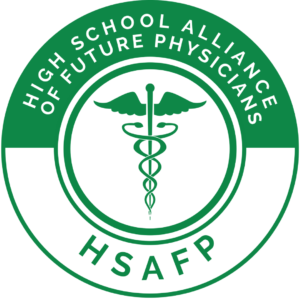
The High School Alliance of Future Physicians
For more pre-med advice…
Start or join an HSAFP chapter at your school today!
Recent Articles

